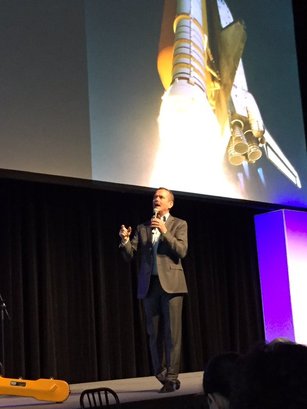
Sunday I read a tweet online from an educator who was praising a speaker at the IDAOrlando conference that she was attending. The speaker, with apparent clarity and certainty, declared that "The number one thing that LD students need, is grit." Well, the comment did make me grit my teeth, if that was the intent! Grit, like the "growth vs fixed mindset" mantra, is just another truism in the current "blame the learner" approach to working with students with learning challenges.
With the best of intentions, teachers and theorists have placed the mindset burden on the backs of students who are already struggling because they learn differently than the system expects them to. And, if being told that they have a fixed mindset is not enough of a burden to place on learners, they follow it up by telling them that the reason that they are underachieving is because they lack "grit" or, as I read recently in another article dedicated to oversimplifying complex processes, they are short on "moxie"! More and more our classrooms and schools are sounding like something out of a Horatio Alger novel or a 1940s movie script.
In actual fact, most of our students have to have incredible perseverance just to get up and come to school every day and face another 6 or 7 hours where they feel like they just can't cut it. So, before you start putting up your "Paul Tough" posters and before you start copying cutesy "Growth Mindset" bulletin boards off of Pinterest, be sure that you know whom your real audience should be.
You see, I have seen the "gritless", and they are us!
It is we educators who often lack the “moxie” to break down the barriers to learning. It is telling that our provincial teachers' union is taking the issue “class composition” to the Supreme Court – basically saying – “get those kids out of my classroom, they are too difficult to teach!” Independent schools all too often do the same thing – we’re just a little more subtle, using phrases like “sorry but your child is not a mission appropriate candidate for our school” or the “it’s not you, it’s me” approach – “Unfortunately, we’re just not a good fit for your daughter/son”.
Instead of listening to the outside experts, perhaps we should be focusing our attention a little closer to home. Standard school jargon talks about the principle of “in loco parentis”, educators acting in the place of the parent – we use it in classroom management, on field trips, and even in how we approach discipline. But maybe we’ve got it all wrong.
Maybe, if we educators really believed in the importance of in loco parentis, we could consider following a different kind of approach when working with our students. You see, parents are really the ones with “grit”. They are the ones with a growth mindset about their own child, they have so much “moxie” that we often berate them in the staff room for being too pushy, or of being “helicopter” parents.
So maybe a real solution for our students, and us, would be to take over their advocate role. In fact, what if we acted like parents rather than teachers? What difference would that make to help students to succeed? What if every school treated each child as if her or his success was critically important to us? What if we all actively searched for ways in which every student could learn effectively? What if we showed the same grit and perseverance that parents do when they support and advocate for their child?
You see, in loco parentis is not actually a legal construct at all, it is a philosophy of teaching and learning. The more that schools and administrators and teachers become cheerleaders, coaches and advocates for children; rather than taking on the roles of judge, jury and executioner; the better the chance they have for success.
Clearly, it is not students who need “grit” or a “growth mindset”, it is us. We are the ones who all too often give up on some kids as being beyond our ability to teach, and move on to easier, more pliant targets. We are the ones who need to use our professional grit to sand away the rough surfaces of insecurity and fear of failure and to expose and polish the underlying core of self-worth. The sooner we cease deflecting our professional responsibilities by blaming the learner for her or his lack of “moxie” – the sooner we can actually make a difference in their lives.
We don’t ask parents to act like schools. And, for their part, schools should not take on the role of parents, but rather what we must do, as educators, is to embrace each parent's belief in the potential of her or his individual child. We have to work with them to help them to discover their own personal pathways to success. Let's not use glib phrases and popular slogans to blame the learner. Let's roll up our sleeves and get to work as their "pushy" teachers.
All it takes is a little grit!



 RSS Feed
RSS Feed
